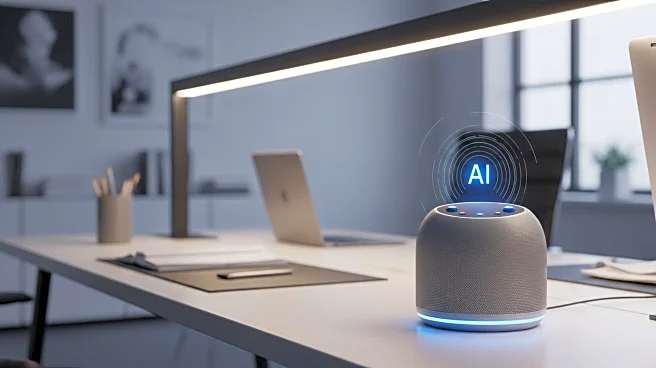What's Happening?
The integration of artificial intelligence in the workplace is becoming increasingly common, but indiscriminate use can lead to productivity issues, termed 'workslop.' This refers to AI-generated content that appears competent but lacks depth, requiring more effort to correct than if created manually. The Harvard Business Review highlights the negative impact of workslop on productivity and workplace reputation. Despite AI's potential benefits, its misuse can result in wasted time and resources, affecting both individual and organizational efficiency.
Why It's Important?
AI's role in modern work environments is significant, offering potential advantages in efficiency and innovation. However, the misuse of AI can undermine these benefits, leading to decreased productivity and reputational damage. Employees and organizations must navigate AI's integration carefully to avoid these pitfalls. Proper guidelines and strategic use of AI can enhance productivity while preserving creativity and reliability. The balance between leveraging AI and maintaining human oversight is crucial for sustainable workplace success.
Beyond the Headlines
The ethical implications of AI usage in the workplace extend beyond productivity concerns. The environmental impact of AI, due to the energy consumption of data centers, is a growing consideration. Additionally, the reliance on AI may diminish human creativity and problem-solving skills, highlighting the need for mindful integration. Organizations must consider the long-term effects of AI on workplace culture and employee development, ensuring that technology complements rather than replaces human capabilities.










